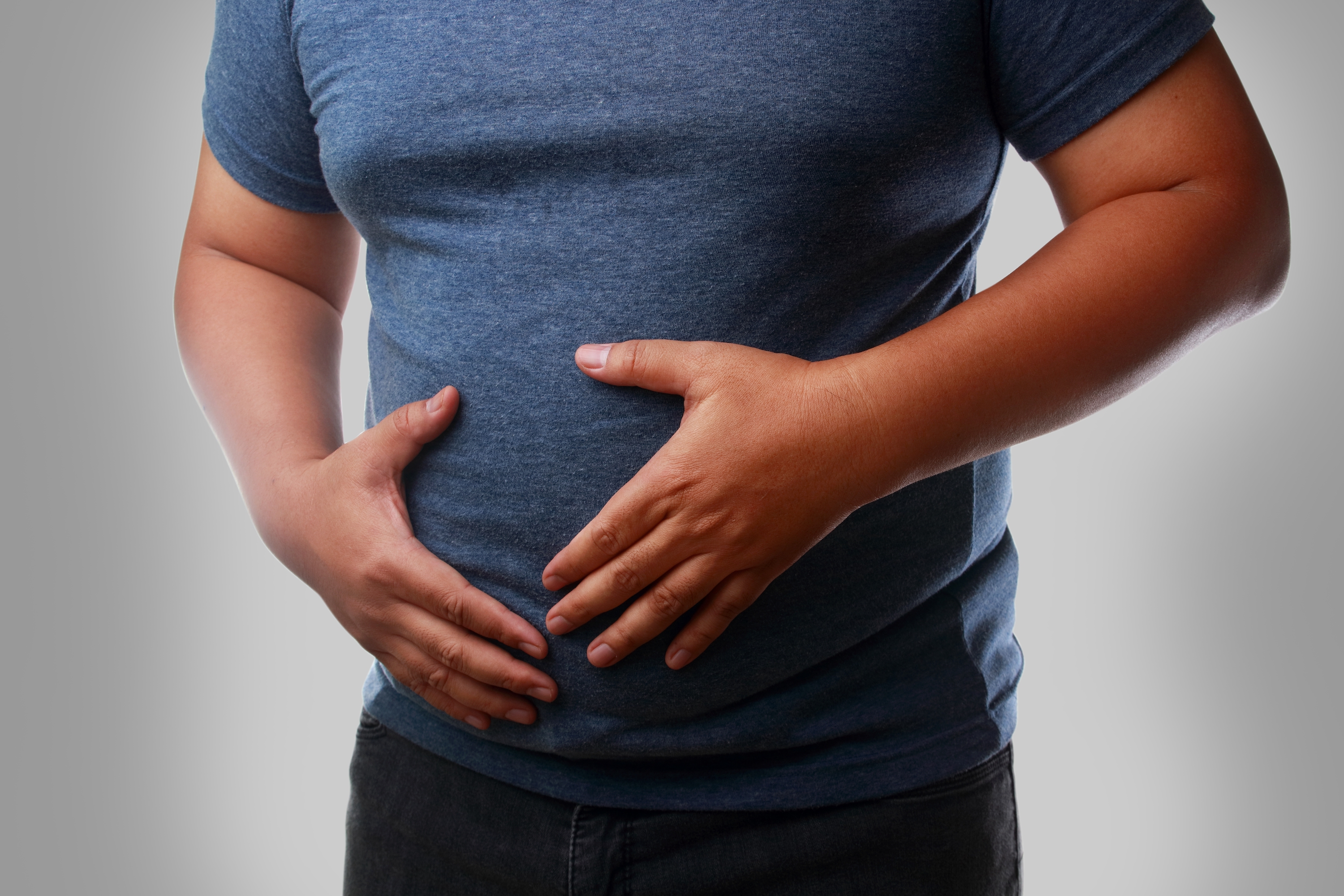The liver is an amazing (and essential) organ — it’s critical for helping digest food and getting rid of toxic substances, and it’s unique in its ability to regenerate itself when it’s damaged. But this doesn’t mean you can (or should) abuse your liver — liver disease is very real, and twice as many men as women are likely to die of liver cirrhosis.
What do you need to know about liver disease? It can either be genetic and inherited from family members or the result of other factors — namely certain unhealthy or harmful lifestyle choices, such as alcohol abuse or obesity. Liver disease can also result from damaging viruses. When liver disease is left untreated, it can lead to cirrhosis, which means the liver is scarred and in danger of failing. Liver failure is life-threatening. Want to learn more about how you can keep yourself healthy? Read on.

What is liver disease?
Your liver is the second-largest organ in your body, not counting your skin. It’s located under your right rib cage and is similar in weight to a football. So what does your liver do? It removes waste from food as part of the digestion process. Your liver also produces a substance called bile that gets toxins out of your body.
Liver disease means that something is happening, and your liver isn’t able to do its job effectively. This can be a result of many conditions and is cause for concern. Once you’ve developed cirrhosis of the liver, this means your liver is scarred. When too much scar tissue takes the place of healthy tissue, your liver can no longer function properly. If you don’t get this treated, it can worsen, resulting in liver failure or cancer.
While liver failure can be life-threatening, early detection and treatment can result in complete recovery.
How does liver disease affect men?
Men suffer and die from liver cirrhosis at double the rate of women. According to scientific studies in 2017, cirrhosis caused more than 1.3 million deaths worldwide. Nearly two-thirds of these deaths were men. Most of the men in these studies contracted hepatitis B, a disease that brings severe liver damage with it. The second leading cause of liver failure was the result of alcohol abuse.
Many doctors warn their male patients about the dangers of hepatitis B and of drinking too much alcohol. While studies show that no level of drinking is deemed “safe,” convincing casual to heavy drinkers to stop remains challenging. Those who work in medicine report five leading causes of liver cirrhosis:
- Hepatitis B
- Hepatitis C
- Serious alcohol use/abuse
- Non-alcoholic fatty liver disease
- Genetic issues
Researchers determined the number of men suffering from advanced non-alcoholic fatty liver disease is now double the number in 1990. Those dealing with chronic liver cirrhosis went from around 4.4 million to 10.3 million. If it’s non-alcoholic, that means that drinking too much isn’t the problem.
Then what’s the problem?
Most likely, this means that the patients weigh too much. They’re probably obese, and unfortunately, this is only getting worse. Thanks to a reliance on processed foods and a sedentary lifestyle, non-alcoholic fatty liver disease is on track to becoming the leading cause of liver cirrhosis. The bad news is that obesity is advancing from a severe public health concern to an alarming issue that must be addressed. The good news is that liver disease and subsequent deaths can be prevented with precautionary measures and lifestyle changes.

What are signs you may have liver disease?
Unfortunately, some forms of liver disease don’t usually cause noticeable symptoms. This is true for nonalcoholic fatty liver disease and may require special testing to confirm. However, if you start noticing any of the following signs, you must see a physician for early treatment to fully recover. Some common signs of liver disease include:
- Jaundice — when your liver can’t get rid of bilirubin, so your skin and eyes turn yellowish
- Pain in your belly — especially the right side of your abdomen
- Bruising easily
- Discolored urine and/or bowel movements
- Lethargy
- Nausea
- Vomiting
- Swollen arms, abdomen, and/or legs
- Itchy skin
- Fatigue
- Exhaustion
- Loss of appetite
6 preventative measures you can take
1. Avoid risks
Make a concerted effort to limit risks during day-to-day life. This will help you prevent hepatitis A, B, or C. For example, using a condom will reduce your risk. If you’re getting a tattoo, ensure the tattoo artist adheres to state or local health and safety standards. Make sure they open up a clean needle in front of you.
Get the help you need to lose weight, limit alcohol use, and get clean. Don’t share needles with anyone if you’re still using intravenous drugs. Again, this will help you avoid contracting hepatitis and other diseases.
If you regularly come into contact with toxic chemicals, use them only in well-ventilated areas and wear a mask. Be sure to follow the manufacturer’s instructions.
Do you travel often? When visiting developing countries, use bottled water. This is important when drinking and washing your hands and brushing your teeth.
2. Limit alcohol use
Doctors will tell you that there is no safe level of alcohol use. However, if moderate alcohol use is a part of your lifestyle, perhaps you need a more realistic guideline. For healthy adult men, that means you should keep it to two drinks a day or less. What does it mean to be a heavy or high-risk drinker? That is typically defined as more than 15 drinks a week for men.
3. Exercise regularly
Obesity is the leading cause of nonalcoholic fatty liver disease. Developing a regular exercise routine and maintaining a healthy weight not only reduces the chance of liver issues but will also reduce the risk of many other diseases and illnesses. Get at least 150 minutes of moderate physical activity each week. You should also set aside two days of muscle-strengthening activity as well.
4. Get vaccinated
Safe and effective vaccinations can help you avoid liver disease, especially if your lifestyle puts you at high risk. Discuss the hepatitis A and B vaccines with your physician.
5. Follow instructions on medications
Common medications like acetaminophen (Tylenol) are too often a cause of liver damage. When you’re taking any prescription or nonprescription drugs, do so only when needed. Adhere to the recommended dosage, and don’t mix them with alcohol. If you take herbal supplements, be sure to alert your doctor and ask about them being used together. When you carefully manage both prescription and over-the-counter medications, this will help you avoid liver damage.
6. Eat healthy foods
Eating a balanced diet, mostly plant-based foods, can boost your immune system and keep you at an appropriate weight. If you purchase fresh fruits and veggies, be sure to wash them before eating. This is especially true if they’re sprayed with insecticides. Take care that the chemicals aren’t absorbed through your skin. Before you eat or prepare meals, wash your hands thoroughly. Avoid foods and drinks high in trans fats or high fructose corn syrup.



